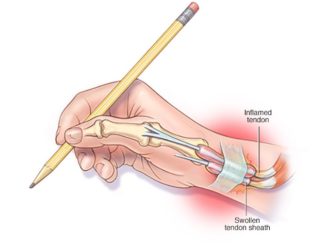
Cholesterol – the dreaded word, which most Indians believe it to be a sign of heart related issue. However this is not completely true. Cholesterol is a waxy, fatty substance present in the body cells. It is found in certain kinds of food and is produced in the body too. It is essential for the body so that it can make Vitamin D, hormones and other factors needed to digest food.
Like everything else, an excess of cholesterol is harmful to the body and is the leading cause of many cardio vascular diseases. But what is truly harmful is that there are no visible signs to recognize that someone has high blood cholesterol. Like slow poison, it could keep damaging your body from within till one day you realize it, perhaps after serious damage has been done to your system.
The liver produces 80% of the required cholesterol and the remaining is available to the body through food. Such as foods derived from animal products like cheese, meat, poultry, fish.
Lipoproteins carry cholesterol in the blood. There are four kinds of lipoproteins in the body:
- High density lipoprotein (HDL) or "good cholesterol"
- Low density lipoprotein (LDL) or "bad cholesterol"
- Very low density lipoproteins (VLDL), which are really bad forms of cholesterol
- Chylomicrons, actually have very little cholesterol but a lot of another harmful fat called triglycerides
Who is Safe?
People often trick themselves into believing that they can't have a certain disease. Similarly with cholesterol. Women believe that they cannot have high cholesterol; only men are likely to have it. Some believe that its only once they cross into their fifties then they have to worry about cholesterol. Some even think that being thin is their ticket to safety. Unfortunately, all of them are wrong. Anyone can have high cholesterol.
In fact one should start getting checked for it after 20 years of age. With the advent of smartphones and computers, the younger generation has adopted a sedentary lifestyle where exercise has reduced to tap of thumbs on their phone screens. The food choices have also changed from simple but healthy food to dishes soaked in butter and garnished with extra cheese. Putting them at higher risk of high cholesterol levels.
If you are over-weight or have a history of high cholesterol in the family or if you suffer from other diseases like diabetes, you should be extra careful. Smokers or obese people should also get tested regularly.
The Guilty Foods
A heart healthy diet and plenty of exercise can help you control excessive cholesterol. Avoid foods with high saturated fats. Animal produces like veal; pork, beef, eggs, milk and cheese are the usual suspects.
Coconut oil, palm oil or cocoa butter is equally guilty. And finally your favorite munchies like cookies and chips are loaded with saturated fat. Steer clear of these as much as possible.
What Are the Signs?
High cholesterol is a disguised disease. It never shows any symptoms. Most people discover it only when it results in a more serious health concern like
- A heart attack – caused by the blockage of arteries of the heart
- Angina – pain caused by the narrowing of the arteries
- Stroke – caused by blockage in the arteries of the neck or brain
- Pain on walking – caused due to blockage in a an artery of the leg
What Can I Do?
Regular testing can help detect and treat high cholesterol.
Considering the Indian lifestyle, doctors suggest that your first test should happen at the age 20 years, to determine the baseline of cholesterol and then you should get tested every 5 years. If you have family history or other diseases or lifestyle as mentioned above, you should get tested more often.
Adults with coronary artery diseases should get tested at least once a year, similarly for those suffering from diabetes and hypertension.
The lipid panel and lipid profile are the most common tests for checking cholesterol levels, which you can get done at almost all diagnostic centers. But if you see your physician, upon physical examination, he might suggest some other tests too.
Following a healthy lifestyle and getting your preventive diagnostic test done regularly is the key to enjoy a good healthy life and keep all the other health issues created with cholesterol away.
Live healthy to enjoy life fully !!
Proudly WWW.PONIREVO.COM
Source by Karthik Sake



